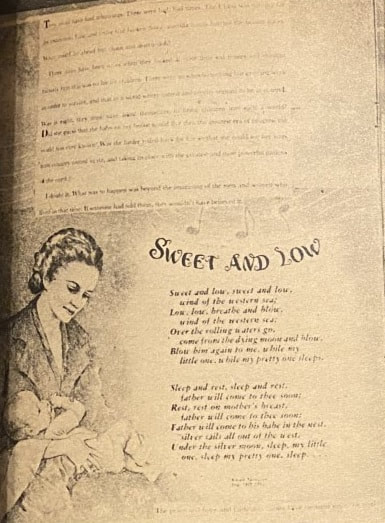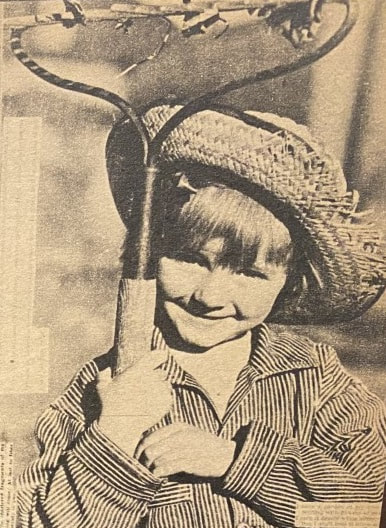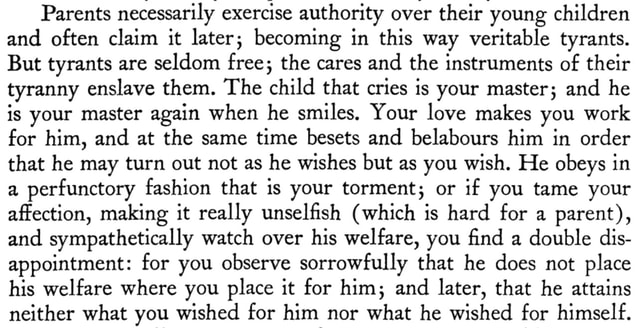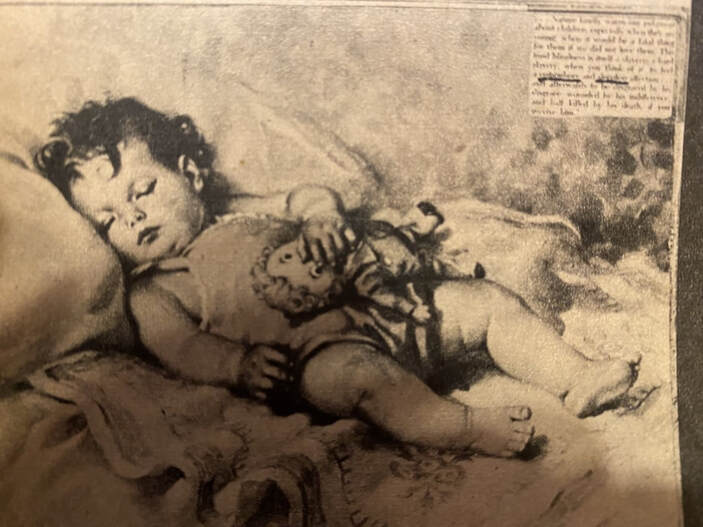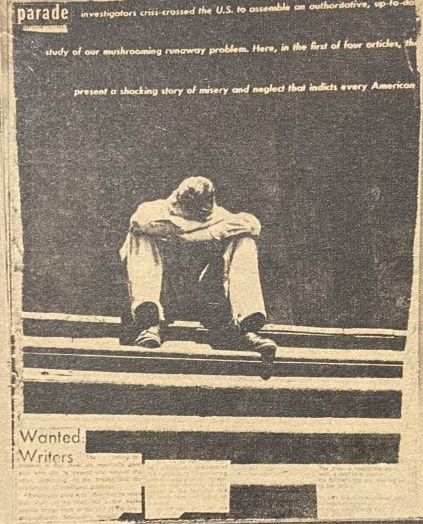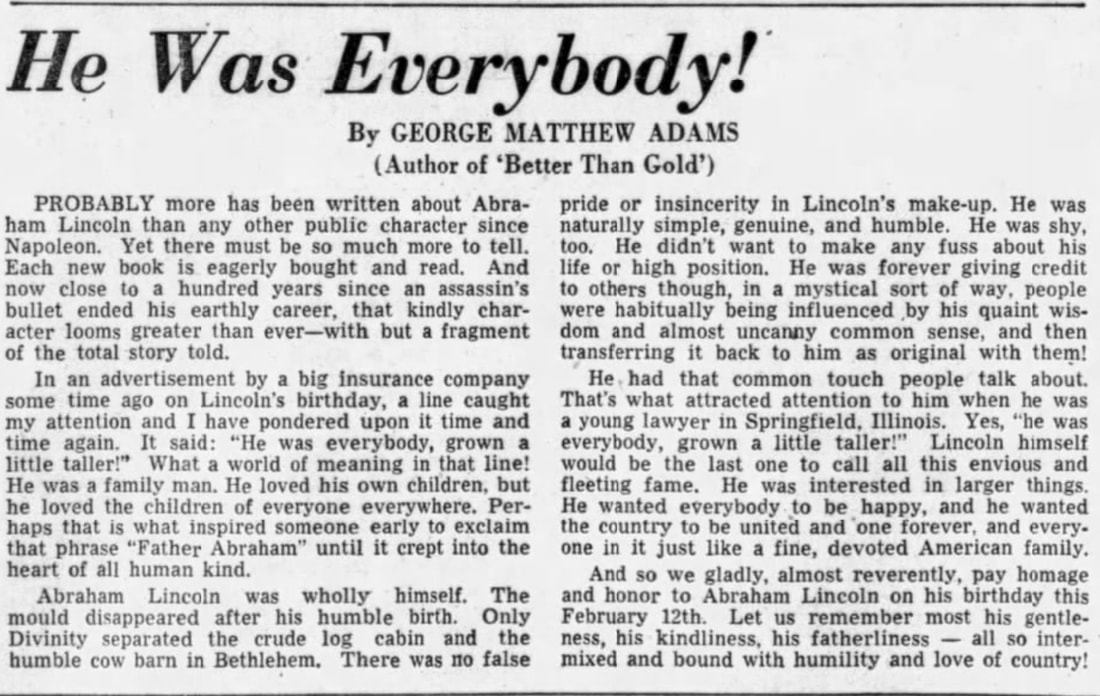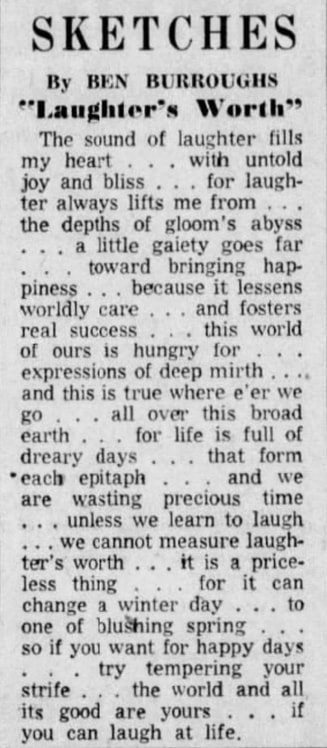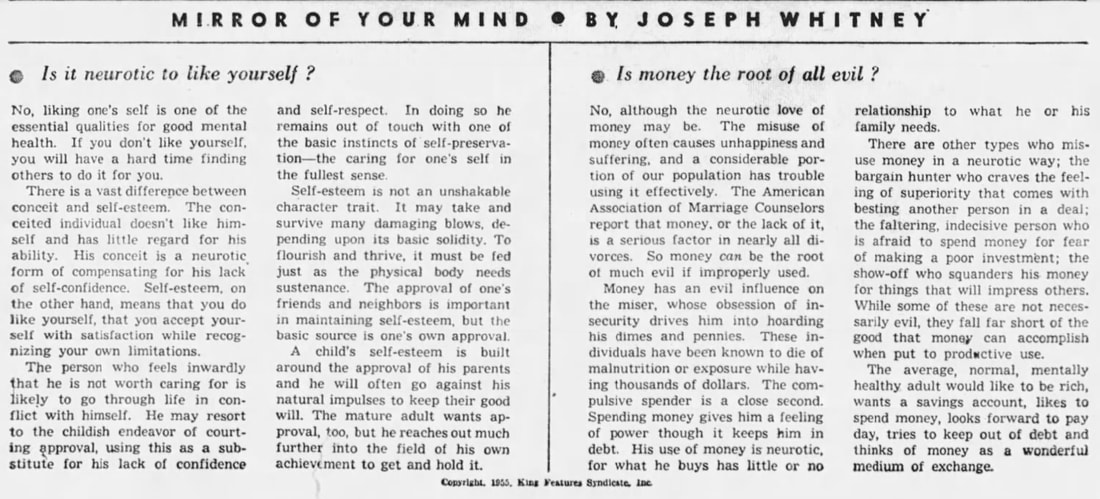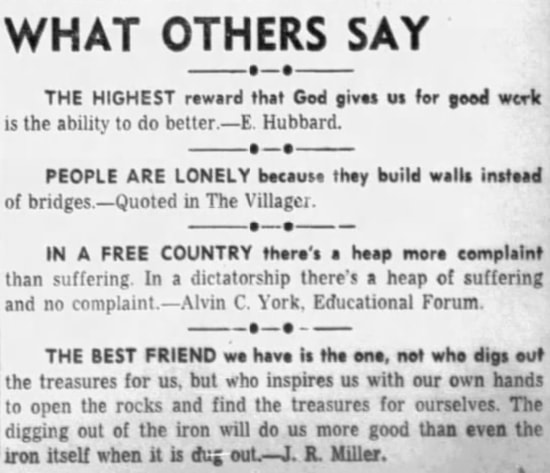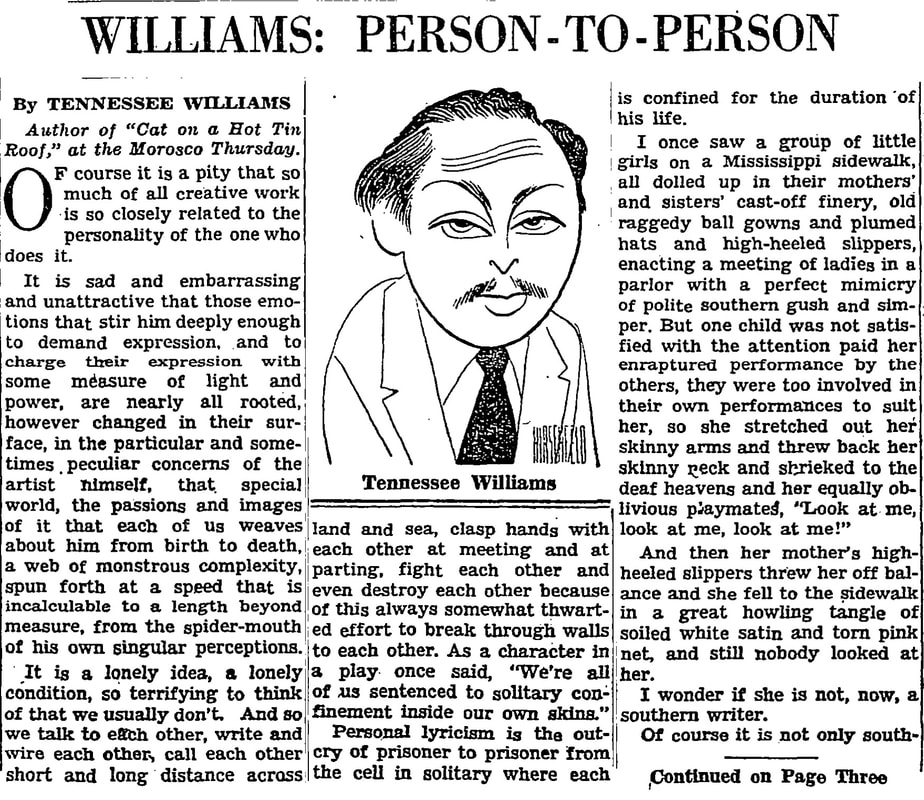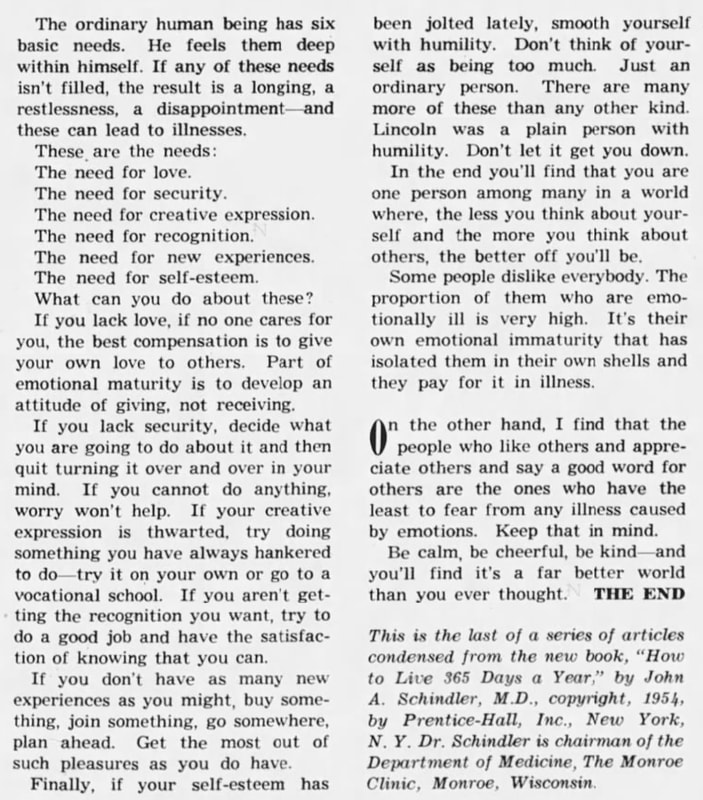In his 1992 biography of James Dean, gossip writer Joe Hyams gave a description of the contents of a scrapbook that James Dean kept. Hyams said that the scrapbook held three pages typed out from chapter XI of Mark Twain's "The Mysterious Stranger," describing the illusory nature of material reality, and two pamphlets for baptism into and marriage within the Catholic Church (apparently dating from his time dating Pier Angeli) may or may not have been found in the book. Hyams is unclear whether they were part of the scrapbook or merely among Dean's papers. He describes the remaining contents:
The scrapbook also contained an article by Tennessee Williams on the relation of creative work to the personality of the person who does it; a newspaper clipping about Elia Kazan; a color photograph of a needlepoint sampler reading, home is where the heart is; a dozen photos of babies laughing and poems about children. There was a sentence torn from a newspaper article reading, "The peace and hope and faith that babies have brought since the world began recompense for any hardship and peril and heartache." Another sentence clipped neatly from a newspaper read, "The world and all its good are yours . . . if you can laugh at life." And another sentence underlined in an article read, "People are lonely because they build walls instead of bridges." Tucked into the pages was a short article on "Is It Neurotic to Like Yourself?" |
Hyams's description omits much of interest. A reconstruction of the contents of Dean's scrapbook through collecting the sources that are identifiable reveals that much of the scrapbook was the work of a six-week period from February to March 1955. This was the time Dean was preparing for Rebel without a Cause. The period was also right after Hyams said Dean had stopped seeing psychoanalyst Carl Van Der Heide, whose therapeutic interest was in the familial origins of sexual anxiety, and shortly before he resumed sessions during the summer. The focus of the contents on loneliness, isolation, and family-induced trauma suggests a few possibilities. One is that this was character research for Dean's role as Jim Stark in Rebel without a Cause. A second is that the scrapbook may have developed as a therapeutic exercise. Contrary to popular claims that the scrapbook represents "his love of children and his sympathy for the lost and lonely," as Dell Publications' 1956 James Dean Anniversary Book put it, it instead reads like an attempt at autobiography by collage.
The material below includes articles from which Dean gathered the excerpts cited by Hyams as well as photographs of pages of the scrapbook published in Dell's James Dean Anniversary Book on pages 32-33.
The material below includes articles from which Dean gathered the excerpts cited by Hyams as well as photographs of pages of the scrapbook published in Dell's James Dean Anniversary Book on pages 32-33.
Excerpt from the Better Homes & Gardens' Baby Book (various eds., 1943-1951).
|
Pasted Text:
(top) They must have had misgivings. These were bad, bad times. The Union was fighting for existence. Law and order had broken down, guerilla bands harried the border states. What could lie ahead but chaos and destruction? There must have been many times when they looked unhappily at their little sod homes and thought bitterly that this was no life for children. There were no schools, there was nothing but grueling work in order to survive, and that in a world where hatred and cruelty seemed to be in control. Was it right, they must have asked themselves, to bring children into such a world? Did she guess that the baby on her breast would live thru the greatest era of progress the world has ever known? Was the future rolled back for her so that she could see her war-torn country united again, and taking its place with the greatest and most powerful nations of the earth? I doubt it. What was to happen was beyond the imagining of the men and women who lived in that time. If someone had told them, they wouldn’t have believed it. (bottom) The peace and hope and faith that babies have brought since the world began recompense for any hardship and peril and heartache. |
|
The pasted text about mothers during the Civil War is condensed and excerpted from the preface to the birth section of the Better Homes & Gardens' Baby Book, but the layout and formatting does not match the published text. It is most likely a magazine or newspaper printed excerpt, but I have been unable to identify the source. The poem Dean pasted the text onto is Alfred, Lord Tennyson's "Sweet and Low" (1849):
|
Sweet and low, sweet and low, |
The photo below also features text from the same excerpt from the Better Homes & Gardens Baby Book in a later section on toddlers. It's not hard to see that Dean imagined the text as a commentary on himself.
|
Pasted Text:
When he passes at last thru the gate of adolescence into maturity, from the shelter of your home into the unknown, he'll be strong, confident, and fearless. He'll be kind and generous because he himself is rooted in love and in gentle ways. In short, he'll be the kind of lad you'd like him to be! |
Excerpt from George Santayana, Dominations and Powers (1951).
Dean cut out the line about the "child that cries" for a collage, but the passage's connection to bad parenting makes the purpose clear. Dean used more of Santayana's text as a caption glued to this photo of a toddler, on which he underlined two words:
|
|
Text from a newspaper clipping quoting Domination and Powers:
Nature kindly warps our judgment about our children, especially when they are young, when it would be a fatal thing for them if we did not love them. This fond blindness is itself a slavery; a hard slavery, when you think of it, to feel a compulsory and sleepless affection . . . and afterwards to be disgraced by his disgrace, wounded by his indifference, and half-killed by his death, if you survive him. |
Parade, September 19, 1954, p. 8
The pasted text contains a headline from a March 20, 1955 UP story about a contest for undergraduate students to win a spot writing for TV, as well as a poem by Norma Farber from the Christian Science Monitor. Unfortunately the other blocks of text are too faded for me to read. The 1954 Parade page, from a piece on why teens run away from home, was almost certainly provided to Dean as part of his research for Rebel without a Cause. It may well have been among the clippings about teenagers Nick Ray gave to Stewart Stern, who worked closely with Dean, in late January 1955 when he began writing the final script. One might suspect Dean saw himself in the similar-looking troubled youth.
George Matthew Adams, "He Was Everybody," syndicated feature, February 6, 1955.
Dean crossed out "humble birth" and wrote in his own birthday, seemingly identifying with the self-actualized Lincoln.
Ben Burroughs, "Laughter's Worth," syndicated feature, February 15, 1955.
Joseph Whitney, "Mirror of Your Mind," syndicated feature, March 13, 1955.
"What Others Say," syndicated feature, March 18, 1955.
Dean cut out the quotation about lonely people. Although not identified in the newspaper copy, the quotation is sometimes wrongly attributed to Baptist minister Joseph F. Newton, who said something similar: "Men built too many walls and not enough bridges."
Tennessee Williams, "Williams: Person-to-Person," New York Times, March 20, 1955.
Full article available at the New York Times. The article is of a piece with the other articles on loneliness and isolation in Dean's collection. Although Hyams claims that Dean included an Emily Dickinson poem ripped from a book Hyams had given him, the same poem appeared in the Williams article after the jump, on page 3. I believe it likely that Hyams was copying from the Times version, which Dean actually used, because he reproduces the newspaper's differences in punctuation and line breaks exactly as compared to the standard or modern printing (at right). The poem, titled from its first line, was written around 1862 and published in 1890.
New York Times printing: |
Standard 20th century printing: |
Modern printing |
Excerpt from John A. Schindler, "10 Ways to a Richer Life," American Weekly, March 27, 1955.
The opening page of the article dealt with emotional maturity and suggested people like Dean were trapped in immaturity due to bad familial influences.


